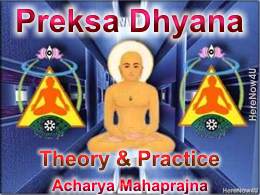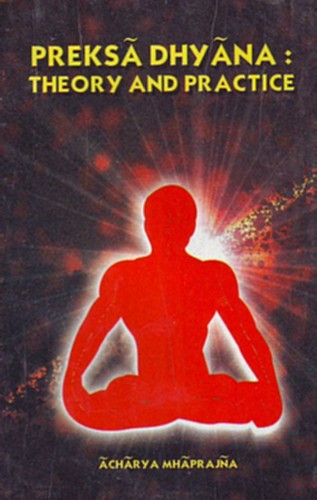
To cleanse the psyche from the dirt of animal impulses, carnal desires and such other pernicious habits, it is essential to know the sources of uncleanness and its modus operandi. Once we know this, the process of cleansing becomes easy and efficient
Our glandular system consists of two types of glands - exocrine and endocrine, the latter being ductless. Their products (called hormones) flow directly into the blood stream and are distributed by it. The complex of endocrine system includes pineal, pituitary, thyroids, para-thyroids, thymus, adrenals, gonads and pancreatic islets. They participate in every bodily function and have profound influence upon the mental states, and tendencies, attitudes, emotions and behavioural pattern of every individual.
The quality of our existence necessitates that there must be some built-in mechanism through which our subtle spiritual self can exercise its authority and control the grosser elements of the physical body. This mechanism must translate the code of intangible and imperceptible forces of the psyche into a form of crude power, which can function through the nerves and muscles of the body. Such a mechanism is located in the endocrine glands. They are the inter-communicating transformers between the psychical and the physical cells. The known methods of inter- communication are electrical impulses of the nerve action and the chemical reaction of the hormones and neuro-hormones. The endocrines are, therefore, aptly named psychic centres.
The endocrine system is the seat of the impulses and emotions of an individual Endocrine and the nervous system are two very important systems of our body. Function of both these systems is to integrate the organism. Close collaboration between the two systems governs mental states, behaviour and habits. The functional interlacing between both qualifies them to be regarded as constituting a single integrated system called neuro-endocrine system. It is this system, which comprises the subconscious mind, and profoundly influences psychological behaviour and tendencies of the conscious mind. It is, therefore, obvious that to cleanse the psyche by removing psychological distortions such as cruelty, retaliation, fear, etc., from our habits, we have to find means of transforming the nature of the chemical messengers i.e. the hormones. The above-mentioned psychological distortions originate in the adrenals, while the sex-impulses are produced in the gonads.
The following table shows the relation between the endocrines and the caitanya-kendras:
| Endocrines | Caitanya-kendras |
| Pineal | Jyoti-kendra |
| Pituitary | Darsana-kendra |
| Thyroids | Visuddhi-kendra |
| Thymus | Ananda-kendra |
| Adrenals | Taijasa-kendra |
| Gonads | Svasthya-kendra, and Sakti-kendra |
Constant triggering and overreaction of the lower endocrines viz. adrenals and gonads results in pernicious habits, affecting our physical and mental health.
Development of the upper endocrines alone can modify the synthesization of the endocrine output and weaken the intensities of the primal drives, thus making them controllable. Constant and regular practice of caitanya-kendra-preksa results in establishing firm control of the reasoning mind over all actions. The cumulative effect of developing the reasoning mind and weakening the forces of the primal drives would ultimately bring about the desirable transformation in mental behaviour and habits.
Svasa-preksa, sarira-preksa and caitanya-kendra-preksa are tools for developing the power of reasoning mind. Once the authority of the fully developed reasoning mind is established, it would prevent the recurrence of the old injurious habits.
On the internal spiritual level, we shall be able to gain self-mastery and infinite compassion, bliss and happiness.
 Acharya Mahaprajna
Acharya Mahaprajna

